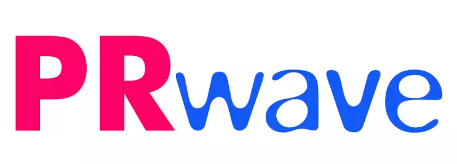Dr. Dan Herman
From time to time the marketing world is taken aback by huge, quick, unpredictable and seemingly inexplicable successes. These hits are products or services, entertainment locales or vacation spots, shopping malls or specialty stores that enjoy puzzling immediate popularity. There are incognitos that become hot celebrities, there are events, festivals or concerts that capture the masses, real estate development projects that evoke huge demand, or styles that become trendy. In nearly all cases, there are also new brands that are immediately adopted by the target population. For example, Harry Potter or The Da Vinci Code, Apple’s iPod and the Blogs, the Hamptons in Long Island New York, Toyota’s Scion brand, the Crest electric toothbrush and many more examples.
{viewonly=registered,special}There are cases in which the reasons for a product’s success are obvious. The success of Viagra – a product that has solved a serious problem for millions of men worldwide – is hardly surprising. Even the success of vacation resorts in Turkey – that have made accessible once a luxurious vacation style to a new middle class segment – is not a mystery. In contrast, in other cases the success of a specific product, place or person over the competition remains unclear. We have all observed the phenomenon of a packed and trendy café surrounded by apparently equally attractive but relatively empty coffee bars.
Research of marketing hits is not a new endeavor. Certain categories have accumulated much knowledge enabling planning and launching of hits with a practical probability of success. In the leisure and entertainment segment, companies such as Disney, Warner, HBO, and others have demonstrated such consistent capabilities in theater, television, music, toys, electronic games, and more. A similar ability has been demonstrated in the fashion industry, fragrances, cosmetics and retail. On the whole, secrets are kept closely. Many have tried to crack the formula of marketing hits successes.
Short sweet success
In the last few years, more and more sectors have become as high paced and as changeable as the fashion industry. The importance of hits for the success of companies has risen in sectors such as the following: automobiles, food, grooming, hotels, construction, entertainment electronics, software, and the list goes on. It even includes unexpected categories such as financial services.
Personally, I have begun my work in the marketing hits field in the latter half of the 1990’s. I identified a radical change in consumer behavior and a dramatic rise in a new motivation that I coined "The Fear of Missing Out – FoMO". In 2001, I developed a standardized questionnaire that measured FoMO and discovered it motivates about 70% of consumers in developed countries at different levels. Of the 70%, half possess this fear at a high level. In extremely concise terms, FoMO turns consumers into serial seekers and adopters of the new (while inevitably forsaking the not-so-new). As such, one consequence among many is that FoMO nibbles at customers’ loyalty to well-established brands.
Articole recomandate:
Ce produce coachingul?
Viitorul în digital: Despre tehnologie, autenticitate și evoluția strategiilor în marketingul digita...
Recunoașterea nevoii de coaching
Coaching de echipă – Cum treci cu echipa prin tranziții?
Coaching executiv – Cât de important este să înțelegi pentru ce te pregătești în organizația viitoru...
Coaching Executiv – Despre reziliență și hotărâre în decizie și acțiune
Coaching Executiv - Când presiunea este prea mare
Coaching Executiv – Despre curaj în schimbarea culturii de organizație



